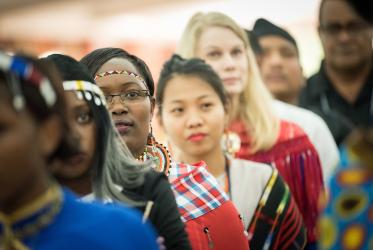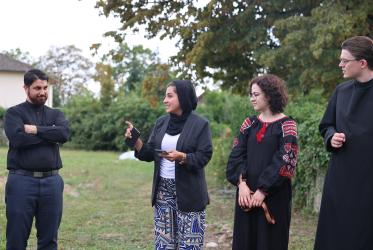Rev. Dr Nezer Soriano, who practices family medicine and is also an ordained elder in the United Methodist Church in the Philippines, candidly described what it is like to be a frontline worker during the COVID-19 pandemic. “People are sick and going into hospital because they are hoping to be healed,” he said—and their families are waiting to hear the news from doctors. “They are all hoping,” said Soriano, who added it’s also important to give hope to the workers themselves.
Often frontline workers have limited access to personal protective equipment, even as they face growing discrimination due to their direct interaction with people who have COVID-19.
Mrs Deacons, a contract sanitation worker and a member of the Arcot Lutheran Church in India, said that sanitation workers are at high risk due to the work itself—already difficult labor but even more intense with new COVID-related cleaning demands.
“…we use strong bleaching powder for cleaning. The smell of the bleaching powder is too strong for me and is harmful for my health. Sometimes I cry because my work is very difficult.”
Alex Gupirii, ACT Alliance forum coordinator from South Sudan, reflected on what it’s like to be a humanitarian worker during a global public health crisis.
“When you talk about frontliners, of course frontliners are doctors, nurses and caregivers but frontline workers are also humanitarian workers giving services to communities impacted by COVID-19.”
The webinar was moderated by Lani Anaya, from the Methodist Church of Mexico, and was the third in a series offering perspectives on COVID-19 responses.







